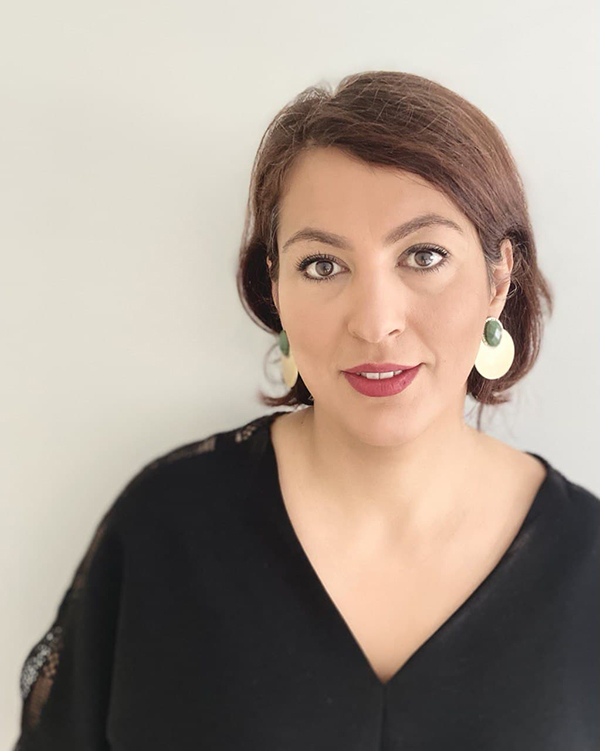I was interested in physical and natural phenomena from an early age and my father motivated me all the times by buying kids science magazines and books. As a material scientist when I look back to childhood, very strangely I was fascinated by materials such as rocks, gems, plants, metals, plastics, glues, and dough and used to enjoy examining their behaviours and properties with my five senses. So, I believe I did not decide on choosing material science for my career and I just trusted my senses.
Give an overview of your professional path.
I have a bachelor’s degree on material science (Metallurgy) and a master’s in Nanoscience and Nanotechnology. Then I got a Marie Curie fellowship in 2020 that brought me all the way from Iran to Ireland to do a PhD in chemical physics of materials working on advance nanomaterials for water purification by photocatalysis. I then moved to Trinity College Dublin to work on graphene and other 2D materials for energy production and energy storage in a world leading group in the field. Since then, I have been working on various European projects from 2D materials to antireflective nanostructured surfaces for optical applications before joining ADAMA in 2020 as research fellow.
Provide a short overview of your job. What are your main responsibilities?
In Adama I am responsible for the all the tasks related to the FLOIM project, mainly developing new solutions to our current challenges towards accomplishing our tasks. I am also responsible for driving another European project in the field nano-mechanical probes. As a research fellow I get the chance to get involved in various research projects from early stages of grant writing to doing experimental activities and writing up papers and reports.
What do you find the most rewarding in your job? What do you find the most challenging in your job?
I changed jobs from academia to industry few times. The best part of research in academia, is the diversity of subjects I get involve in and new challenges I encounter, those demands continuous development in personal and scientific skills and builds a creative thinker and problem-solving personality. This is what I was missing in industry and some corporation jobs. However, the challenging side of research specially in academia is the job insecurity that is due to the nature of every project being defined for limited time. These demands spending tremendous amount of time writing up research grants, proposals, and negotiations with funding agencies.
What is your role within the FLOIM project? How do you expect your work in FLOIM project to contribute to your career development?
Within FLOIM I am responsible for driving the research activities related to Tooling Technologies, specifically nano-patterning of mould inserts for developing optical gratings. I had previous experience on nano-pattering optical surface using block- co- polymer self-assembly technique, however in FLOIM I became familiar with industrial replication technologies for manufacturing of plastic optical components and got hands-on a new Nano-Fabrication technique, Focused Ion Beam lithography (FIB) for micro and nano patterning moulds for injection moulding. Working in FLOIM project is exposing me to several new challenges related to processes developed for end users, and I hope it will increase my understanding of industrial manufacturing needs specially in the field of low-cost biomedical diagnostic chips which is my ultimate interest for my future work.
What would you advice to girl students that want to pursue a career in a science and technology field?
I advise them not to underestimate their capabilities, potentials, and intelligence. Do not blame yourself for not being competitive and good enough. Always keep in your mind we are living in a world designed and run by men. So, you must be resilient and try harder to prove yourself for any position specially in science and technology. I recommend reading “Invisible Women” book and push harder to make yourself visible.


